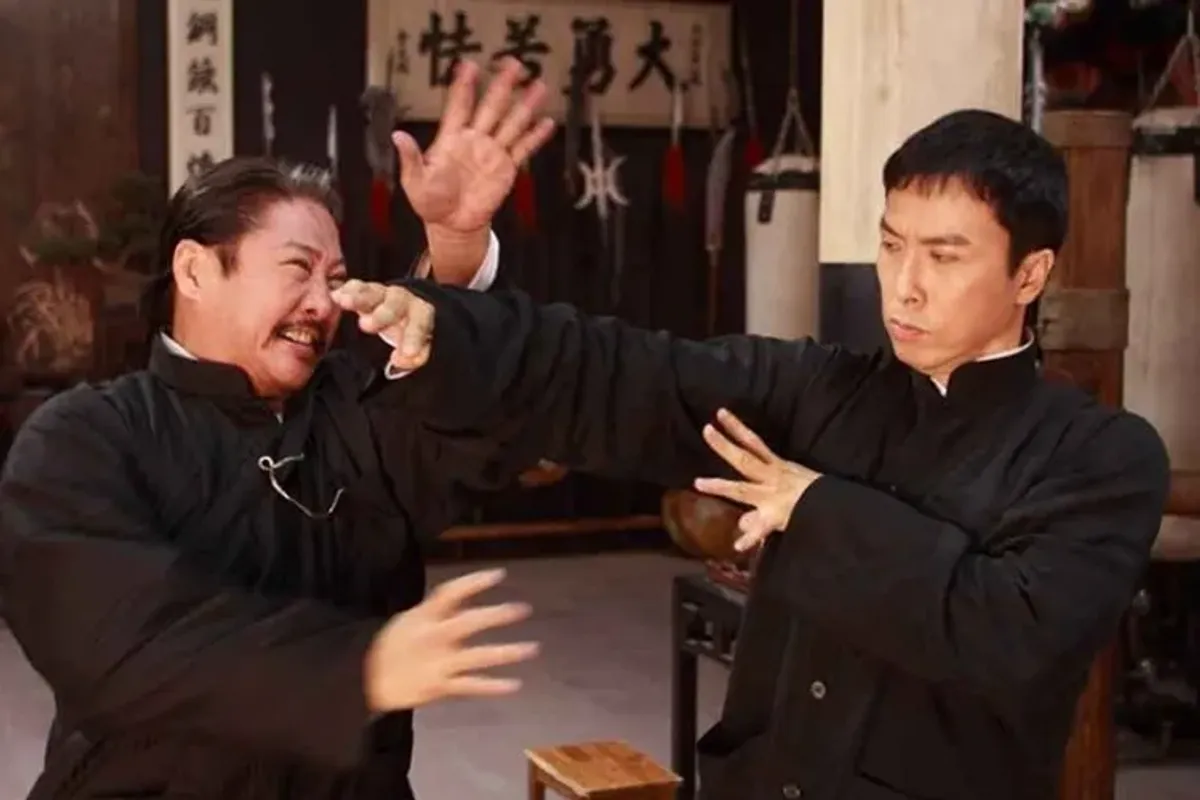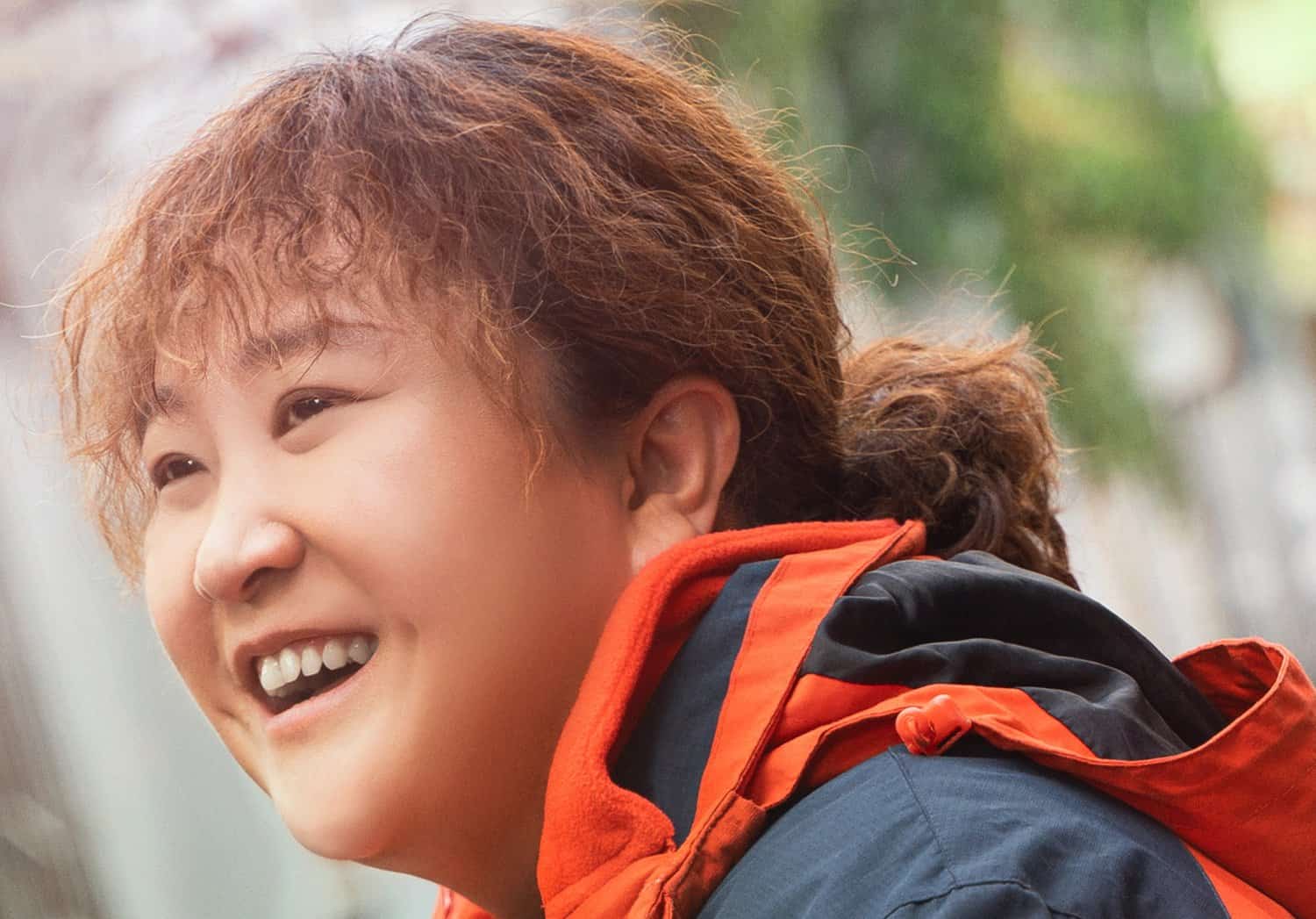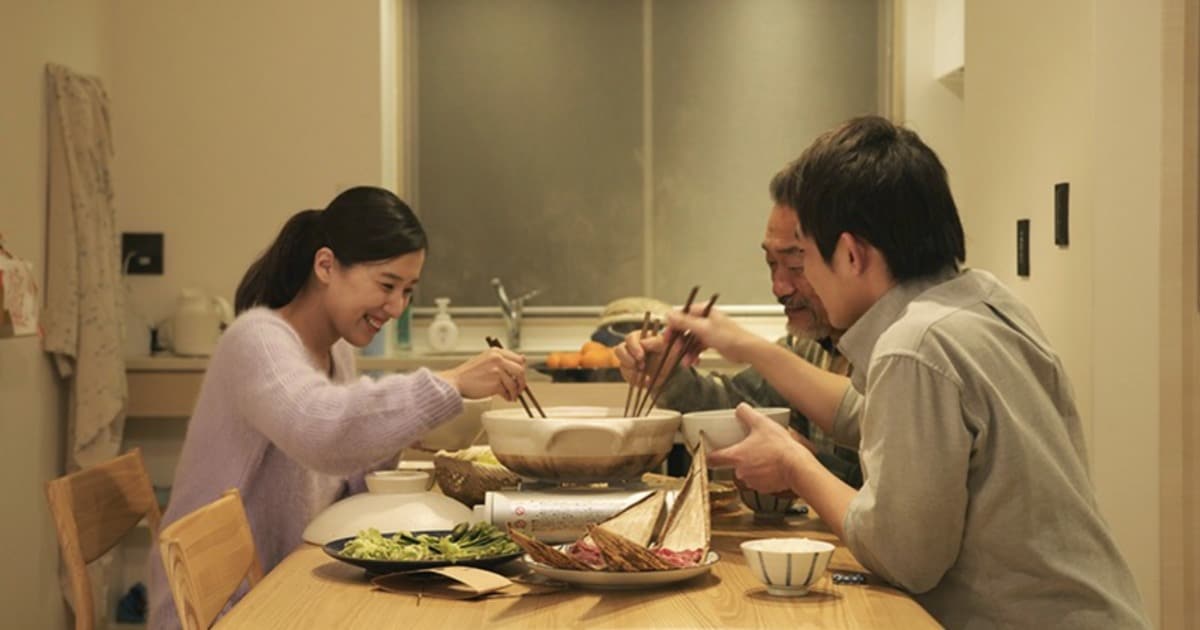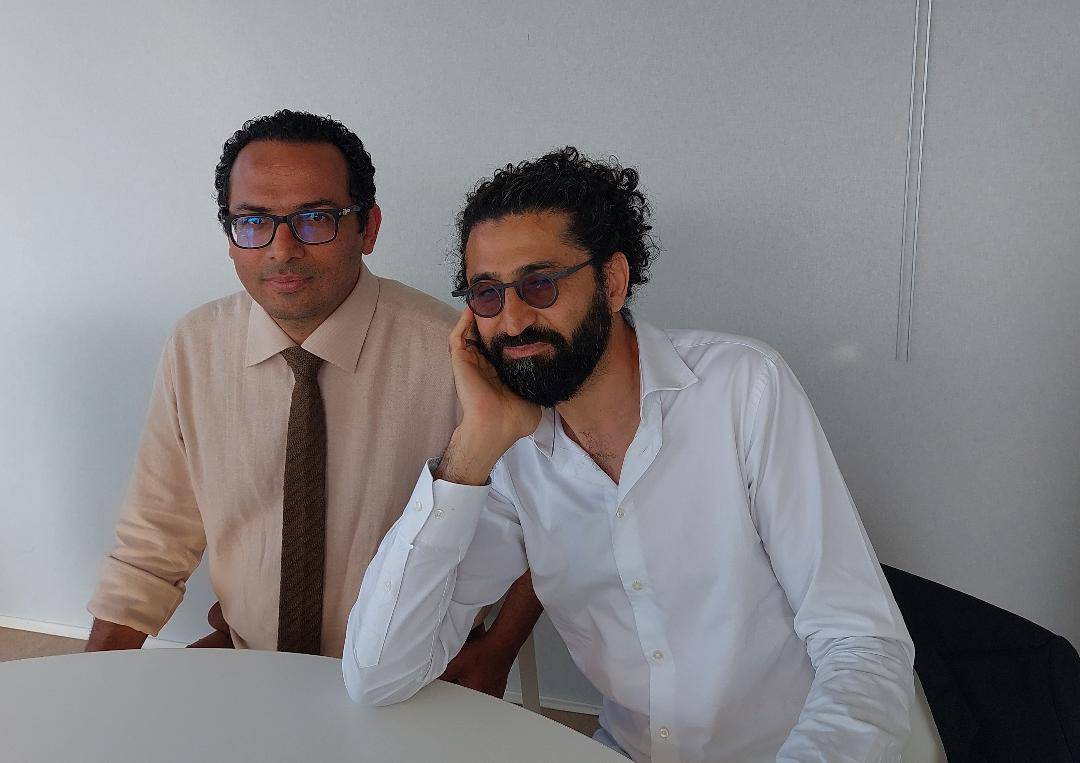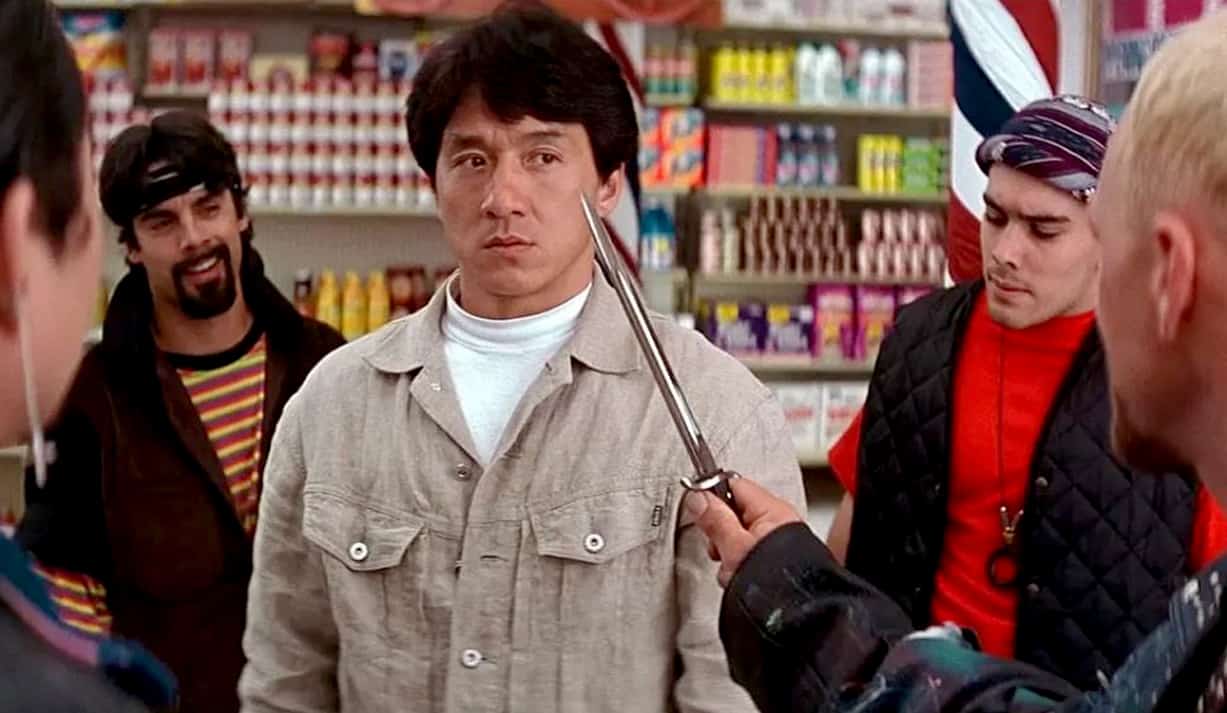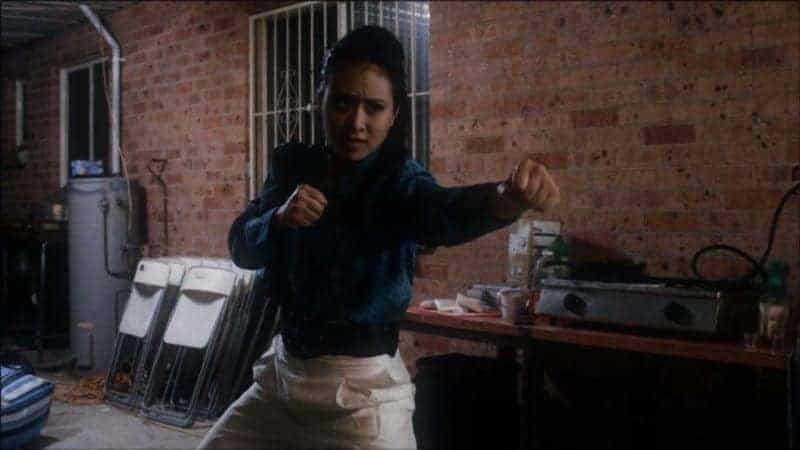We speak with Jakub Krolikowski, artistic director and co-founder of Five Flavours Film Festival, about the path that led him to organize an Asian film festival in Warsaw, the way Five Flavours works and the team that makes it happen, the past and future of the festival, and many other topics.

Why did you choose to have a festival about Asian movies?
I was always involved in various activities, like in NGOs, even during middle school and I was interested in following this path, connected with charities, after school. Fifteen years ago, I got involved with Arteria Art Foundation. I am not the founder, but I worked very closely to the people who started it. Basically, the NGO was created to do theatre performances, but from the beginning, our second branch dealt with social projects.
One of these projects was dedicated to the Vietnamese community that inhabits Warsaw. Actually, it was the first project in Warsaw for this group, these people, which was a surprise, because Vietnamese were the biggest foreign community here. Right now, the Ukrainian one is bigger but Vietnamese are still a very large group. So at the time, the Vietnamese used to live in a kind of ghetto organized around the 10th Anniversary Stadium, where a huge market was situated, kind of like a Chinatown. We used to call it Viet town, for that matter. We did a couple of projects with the Vietnamese there. I was already a film lover and I was involved with another festival in Poland, New Horizons. After a couple of projects that were not film oriented, me and my friend Thanh Quoc Nguyen, who is Vietnamese, decided to talk about Vietnamese in Warsaw through cinema. We created the first edition of Five Flavours, which was called 1st Vietnamese Film Review “Cinema in Five Flavours. We just planned for one edition actually, we just added the word “First” just in case, but we did not think of doing a second. But somehow it went very well, and in the first edition, I combined everything I love doing, since the project involved cinema and meaningful social work.
What would you say is the purpose of the festival now?
Well, the purpose changed since the first edition which was focused on Vietnamese and we really put a lot of effort into bringing the Vietnamese people closer to Polish people and vice versa. We did many lectures, workshops, presentations, and all the things were Vietnamese. Later, after the second edition and the feedback we received from the audience, we realized people really liked the festival, they were really glad that, for the first time in their lives, they could watch Vietnamese films, because those films were not available, they were even presented in Europe for the first time.
On the other hand, we realized that many among the audience did not know much about this region. To understand Vietnam and Vietnamese culture and what the Vietnamese community brings to Poland, you actually have to know a little bit more about the whole region, about Indochina and the situation there, the history of SE Asia, the development of the country, the occupation by China, all those “exchanges” between countries. Of course, it is impossible to explain everything, but at least we decided we wanted to present a “picture” of the whole region, to give a background for Vietnamese culture and then direct attention to Vietnam, from a wider perspective.
That is why, from the third edition onward, we decided to present films from other SE Asian countries and later included East and a little bit of South Asia. Sometimes we present films from India for example, but just one or two title per edition.
Currently, the goal of the festival is to present different cultures, which some people in Poland still consider exotic. I do not like this word at all, but it describes, quite well, how people think about this matter. We did not want to use a folklore style to talk about different cultures, which is very common, like dancing in colorful clothes and traditional instruments, which, in essence, is boring and does not exist in the reality of these countries. Instead, we want to present these cultures by producing events of high quality, organized as professionally as possible, presenting modern, ambitious art works of quality from these countries. Art that, sometimes, may even “embarrass” (laughs) Polish filmmakers and audience as to how amazing it could be, how amazing it is. Sometimes, people come to the festival and think, “Now we are going to watch very strange films from the Third World”, but after they watch the films, they think something like, “Oh My God, this is unbelievable, this imagination, this technique, this kind of storytelling, this religion etc”. In essence, they are astonished, and I think and it helps change Polish people attitude regarding the rest of the world.
But we are still, Polish people used to live for so many years in a sort of a cultural “incubator” and we are still not a very “open” country, we are still in the process of opening to the world. We open a little after we became part of the European Union, we became Europeans, now a lot of people now identify themselves as Europeans, but that is all. So now, in essence, our incubator is Europe (laughs).

What are the pros and what the cons of having a festival in Warsaw?
For starters, we were bound to have it here because of the history of the festival and the Vietnamese community. In addition, I really like this city, even though it is not the best place in the world or even in Poland, but is the most modern city in Poland. Not in terms of public transportation or architecture, but in terms of local politics and regarding the quality of life and how open it is to the world. The local politics currently are actually opposite to the national politics. We now have a right-oriented government but the local government in Warsaw is very liberal. Even after the change of power in Poland, when the new government started their term, the local policy is even more liberal and they put more effort towards tolerance, fighting against racism, diversity, multiculturalism, even increased their efforts to develop these parts of the city, in a kind of opposition to the national politics.
Can you give us some details about the team behind Five Flavours?
We have three permanent members for the whole year, coming to work every day and having salaries, insurance etc. Me, Ania Rundsztuck and Jagoda Murczynska. Jagoda is on leave at the moment, and Maja Korbecka is replacing her. However, three months before the festival, our team grows bigger and we have more workers responsible for some departments, like guests, people's jury, for prints etc. So the team during the festival is about 9-10 people. All the workers who are responsible for different parts during the festival, like volunteering, guests and so on are paid workers. Of course, the salary in this field, of culture is not so big in Poland, but it is not that bad.
Can you give us some details about the film selection?
The selection is based on our own research. Very rarely do we invite films that are submitted to the festival, although we have a lot of submissions. But most of the films are selected after our own search on the Internet, asking producers for screeners, and attending quite a lot of festivals like Berlinale and Rotterdam, but also smaller ones like Osaka, or markets like Filmmart. And since we have been around for 12 years, we already know a lot of people from the industry. So, if we know, for example, that one of the producers, who very frequently works for arthouse movies, is making a new film, we try to follow his production and when it is completed, we ask for the screener or a presentation.
But for many films, especially in the competition, we focus on them from their very beginning. For example, we hear about them from a film market, like from HAF, Hong Kong Asia Film Financing Forum. In this event, we meet with directors and producers who are preparing their projects, they are on the stage of development. and if the project sounds interesting, we try to follow its progress later and maybe invite to the festival when it is done.

Can you give some details about the peripheral activities of the festival?
Of course, the screenings are the most central part of the festival, but I hope that the audience does not feel that Five Flavours is a festival only to watch films and go home. That is why most of the movies, like 90% of them include introductions before the screenings, where we give the audience information about the filmmaker and the background of the movie, like history or social background, in order to direct people to the “correct path”.
We do not want to talk too much, to destroy this joy of experiencing the movie by themselves. Sometimes, though, in films like No1 Chung Ying Street, that have a very important historical background, it is really worth saying a few things before the film. Luckily, for this particular one, we had a guest this year, and this is another very important thing for us, having guests from Asia who can introduce the films by themselves and then take part in a Q&A session. We usually do quite long Q&A's after the screening, like for one hour and I am very happy we can do it like that, because I know many festivals cannot spend too much time like that between the screenings. We decided, since we invite a director from the other side of the world and is coming here flying 16 hours, we should offer him as much time as we possibly can.
How about your cooperation with Arteria Foundation, Adam Mickiewitz Institute and the Asian Film Awards Academy?
Arteria Foundation is an NGO that is formally the organizer of the festival and also of other projects and events. Adam Mickiewitz Institute is also involved a little, they support the visit of Sylvia Wong, who is covering the festival for Screen Daily. Our cooperation with Asian Film Awards Academy is very good and they offer much support. They have this idea to promote what they do and to present the films that are nominated for their awards to not so big festivals around the world. I think it is a very good idea to do it this way, because the films nominated are commercial, and festivals, particularly in Europe, rather avoid presenting commercial films. They consider those films as not really art, but in Asia, this split is not very obvious. Very often, radical art house directors do commercial films and they are very good pieces of art and this is our philosophy too, we do not mind presenting genre films, we do not avoid presenting commercial films. The only requirement for us is that it has to be a good movie.
So, with Asian Academy, we organize the section called Asian Cinerama for the second time, which is a collection of films nominated for Asian Film Awards the previous year, and this is the section which the part of the audience that come to the festival for the first time, and do not know much about cinema, usually prefer.
Additionally, you run a distribution company?
Yes, it is another branch of the festival run by Arteria Art Foundation and we call it Five Flavours Asian Cinema. We have released three films as of now, “Apocalypse Child“, “Honeygiver Among the Dogs” and “Marlina the Murderer in Four Acts” and in January we will release “Samui Song“. We started this project a year ago and we are actually learning how to do distribution, art-house distribution in Poland. It is very hard to compete with other distributors, because of one very important reason: distributors in Poland and Europe in general, can receive very large support from European Union's media program, when they distribute European films or films that are European co-productions. This means that the number of European films released in Poland is very big and these distributors can spend large sums for marketing, for example, compared to us, since we do not receive any support. There are even local funds that support art-house distributors, but again the films must be European or Polish.

Do you screen your films just in Warsaw or in other cities also?
The whole Poland actually, most of the major cities have at least one theatre that screens all the films.
And how was the attendance?
It was ok. It was not spectacular; it is not as successful as our festival. In Warsaw, we have much bigger audience than in other cities. We found that even films like “Marlina the Murderer in Four Acts”, which is entertaining and approachable, are treated as radical movies, very strange and extreme, in smaller cities but also in bigger ones. I think it requires a lot of time to prepare and “teach” audience how to deal with this kind of art. I do not know if we will have enough tools to do something like that, because, here in Warsaw, we have the tools to do it locally, through the festival and by releasing films here. For example, we can go to the screenings and do introductions, go to the radio etc. But in other cities, we have to rely on people who run the cinema ,and even they, occasionally, do not know how to analyze those films, they do not know how to talk about them, how to promote them in essence.
How is the financial status of the festival?
It is good, it is ok. This year we have a little less support than the last years, because of the changes of the national policy regarding the allocation of funds, which resulted in not receiving a grant from the Polish National Film Institute, which was quite important for us. That is why we decreased the number of films we screened this year, they are five less. It is not a big number but it is still something. We also had to cancel some of the activities which were expensive; for example, this year, we do not offer money to the winner of the competition section.
Our biggest sponsor and financial partner is Warsaw City Council, and they have been supporting us from the early beginning and they really like Five Flavours, they consider the festival an important event for the city, because it suits their policy and strategy. As I mentioned, we do not agree with the policy and strategy of developing culture of our current government.
The second thing is the income of tickets and the festival would not make sense if we could not have a proper income from admissions, which is about 20%-25% of the whole budget.
And how is this year going in terms of tickets?
The number of admissions this year is similar to last year or a little bit bigger, which I consider a success, because we presented less films (5 exactly) and we spend less money on promotion and marketing.
The festival has been running for 12 years. Can you mention some of the most memorable moments, good and bad?
Every year we have something significant. The festival has been growing since its first edition, with the number of admissions increasing every year. However, there is one exception. The second edition of the festival was very bad. After the success of the first edition, we became too proud of ourselves and the second edition was prepared in a way that was not careful, we did not put so much effort in the small details, as in the first edition. The third one though was much better, and since then, the number of admissions has been increasing, the number of screenings has been increasing , the budget has been increasing. This year, the budget is a bit lower, but the admissions seem to be higher.
Regarding significant moments, I would say our tenth edition, our anniversary edition was quite important, because we organized a convention of Asian film festivals in Europe. It was a very big step for us, not in terms of budget, number of films or selection, but in terms of our motivation at a psychological level. There is that saying, that you can keep what you have only by giving it away. So we met here in Warsaw, and we shared what we have accomplished, our experiences, and now we help and support each other and I think this was very important for the atmosphere of our festival, to get a better perspective of what we do, because we were not totally conscious of the level we are, as a festival. We are in Poland, which is a post communistic country, and we are very far from other festivals in Europe. But we found out that it was not that bad actually, we are in the top of Asian Film Festivals in Europe. So, from the tenth edition onwards, we are more conscious of what we are doing and we are enjoying it more. We are more knowledgeable of what is important for the festival and what is not important, which part of the festival has to be organized and prepared more carefully and which needs to stay exactly as it is.
The tenth edition changed our strategy of developing and organizing the festival in the future, significantly. That is why this year, we had this idea to apply to Erasmus Plus and with other festivals, we are preparing an educational project. This project will probably finalize some of the ideas that were discussed during the first convention and finally make them happen.

As you mentioned, the festival has been growing bigger with every edition. What is the secret for this success?
I am not sure if I am the best person to ask this question because I am going to sound like I am too proud of myself. Anyway, one element is definitely patience. Patience and time. It takes time and effort for people to learn how to deal with this cinema, Asian cinema. As I mentioned before, the audience is growing with us. We have some people that have been with us since the early beginning, and for example, after visiting Five Flavours, they decide that they are going to spend their vacation in Asia. So, they are growing as we are growing. For this, you have to be patient, patience is one of the secrets.
The other one is, as much as we can, we try to develop. Every year, we do a research regarding the audience, we organize kind of surveys and polls and people can write what they liked and what they did not, what should be improved, and what should not change, and this part is very important for us because it is the way to improve.
I believe the festival will keep this creative atmosphere, which will only improve in the future. The whole world is improving, much faster that it did 100 years ago for example, thanks to technology. The festival will exist only if it follows this energy, and this is why we try to improve every year and change something, add something with every edition.
I have visited many festivals that are “stuck” somewhere, festivals that were very good ten years ago, but their organizers believe that is should be like that forever. For example, there are festivals in Poland where you cannot buy tickets online, even Warsaw Film Festival, the biggest festival in the city, they only started selling tickets online since last year, but you still have to go to the box office and print the ticket and queue in huge lines. Of course, this is a small technical thing but other aspects, like the way we select the films and how we present them and the quality of screenings, translations, sound has to be improved in order to keep going.
What is your opinion of Asian cinema at the moment, and do you feel that there are some countries or filmmakers that stand out?
What I can say is that there are so many different cinemas in Asia and each of them has different stories, you have to compare the condition of Japanese cinema these days and Malaysian cinema these days, for example. Because Japan has a very stable social and political situation, so the cinema situation is stable, which, in art, means boring (laughter). So, I think Japanese regular feature films are not in their best of time, but on the other hand, you have Malaysia for example, where there was a big change in May (the ruling political party changed after 60 years) and you can feel this change in art as well, there is a creative energy, a feeling of hope, and this is expressed in cinema as well.
The same thing applies in Hong Kong, because independent artists nowadays have much difficulty to channel this creative energy in their films. Like Derek Chiu for example, he put so much energy to complete his film, he did not get any support from Hong Kong Film Institute or other institutions. But in the end, he managed to complete it. Of course, in Malaysia the situation is different because the government is new and more democratic while in Hong Kong people feel offended and controlled by the mainland Chinese government, and this generates creative energy as well, although in this case, it is not expressed in cinema that much. There are fewer films, but some of them are very moving.

How do you see the future of the festival and what are your plans for the future editions?
We will keep going, keep improving. I am quite excited about this Erasmus project and the educational part we are going to develop in the following years, because it is a three years project. For our next edition, we have already started working for new independent Japanese films and it is connected with the anniversary of 100 years of diplomatic relations between Japan and Poland, which is going to be in 2019.
I would like to extend and screen more genre films in the festival, to develop this part because I think there is a significant gap, in Poland in particular, because, as I mentioned before, festivals in Poland treat genre films as second-rate cinema, worse cinema. And there are some very good Asian films which are blockbusters, but nobody has heard about them here, like for example, “Operation Red Sea”. There is no festival in Poland that presents films like this, it is not that it is Asian, it is that it is too commercial. And on the other hand, it does not have the commercial potential to be released in Poland, so it is somewhere in the middle, they cannot be released because they are too risky for distributors but too commercial for festivals.



